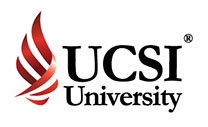| Exam Body | Internal Degree, Malaysia | |||||||||
|---|---|---|---|---|---|---|---|---|---|---|
| Course Duration | 3 Yrs | |||||||||
| Part Time/Full Time | Full Time | |||||||||
| Fees | 77730/Course | |||||||||
| Fees (International Student) | 81820/Course | |||||||||
| Campus | UCSI University, Kuala Lumpur Campus | |||||||||
| Faculty | Faculty of Applied Sciences | |||||||||
| Conducted entirely in Malaysia | Yes | |||||||||
| Awarding Country | Malaysia | |||||||||
| Level of Study | Bachelor's Degree Level | |||||||||
| Field of Study | Computing & IT | |||||||||
| Course Description | Biotechnology, the fastest growing science-based industry in the world, is widely regarded as the new engine of growth for the global economy. Covering the medical and health care industries, the agricultural and industrial sectors, the environment, and forensics, it encompasses also the applications of technologies like biochemistry, molecular biology, genetic engineering, bioinformatics, and others for the development of new products and processes. In addition, it also includes vaccines and drugs for the treatment or improvement of life-threatening diseases like AIDS, medical diagnostic kits, agricultural products with improved nutritional values and reduced dependence on chemical pesticides, as well as high quality industrial products, cleaner biochemical process with less waste, and DNA ?ngerprinting for improved criminal investigation. | |||||||||
| Curriculum |
All information is correct at the time of upload and UCSI University reserves the right to make amendments without prior notice. | |||||||||
| Entry Requirements | For Biotechnology and Food Science & Nutrition: STPM Min 2 Principals (C) in Chemistry and Biology/Mathematics/Physics. Minimum GPA 2.0 ‘A’ Levels Min 2 Principals (E) in Chemistry and Biology/Mathematics/Physics. Minimum GPA 2.0 UEC Min 5 credits (inclusive of Chemistry, Biology and Mathematics/Physics) CPU Min average of 60% in 6 subjects (Inclusive of Chemistry, Biology and Mathematics/Physics) National Matriculation Min CGPA 2.0 (inclusive of Chemistry, Biology and Mathematics/Physics) WAEC Min average of 60% in 5 subjects (inclusive of Chemistry, Biology and Mathematics/Physics) Other qualifications equivalent to STPM/A-Level by MQA Min average of 60% (inclusive of Chemistry, Biology and Mathematics/Physics) Diploma/ Advance Dip/ Degree/ equivalent Min CGPA 2.0 (inclusive of Chemistry, Biology and Mathematics/Physics) (Case - to - case basis) UCSI Foundation in Science or equivalent Min CGPA 2.0 (inclusive of Chemistry, Biology and Mathematics/Physics) International Baccalaureate Min 26/42 from 6 subjects (Minimum scores of 4/7 in Chemistry, Biology and Mathematics/Physics) SAM Pass with ATAR of 70% including a minimum average of 60% in 5 subjects (inclusive of Chemistry, Biology and Mathematics/Physics) *To be reviewed by the University on a case-to-case basis. For the Nutrition with Wellness degree programme and Diploma Aquatic, prefer to http://www.ucsiuniversity.edu.my/foas/ for more details. | |||||||||
| Intake Months | April, Sept, Dec | |||||||||
| Career Prospects | Biotechnology graduate can readily apply his/her knowledge and expertise in the following areas:
|
All fees are in RM (Ringgit Malaysia) currency unless stated otherwise.
Other Courses in this Level of Study Other Courses in this Field of Study

























